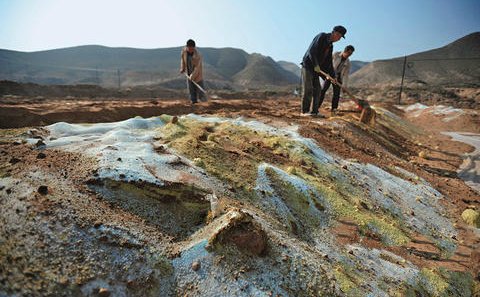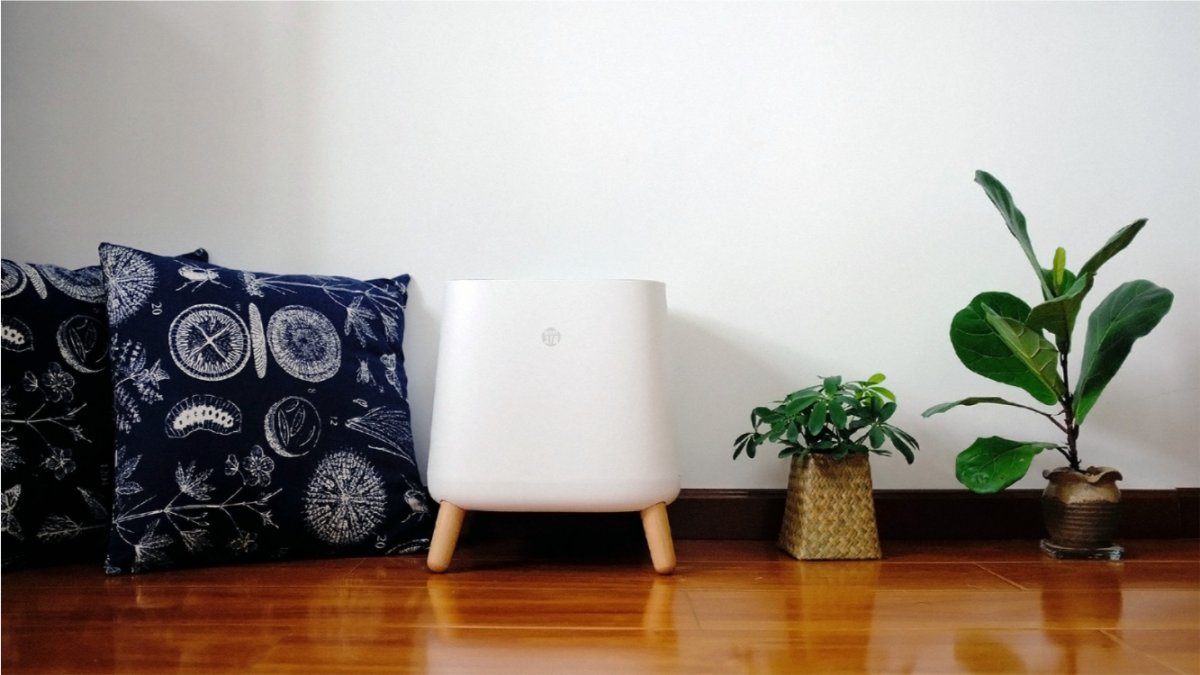Beicology: China Targets Soil Pollution, Beijing Wetlands Remove Pollution, Companies Switch to Sustainable Packaging
New law targets soil pollution
China has been taking decisive steps toward cutting smog in its cities, but the country’s rapid growth has introduced pollutants to more than just the air. Soil pollution too threatens limited arable lands, the crops they grow, and the people who eat them.
One major source of such pollution is industrial dumping, whose metal-heavy waste has resulted in excessive amounts of cadmium in 44% of China’s rice. Cadmium is normally harmless in small doses, but if too much is consumed it can build up in the body’s organs and cause serious health problems. Other harmful metals including lead and arsenic have been found to be present in China’s soils, with almost 19% of farmlands contaminated.

However, a legislative response has at last put soil protections in the letter of the law. The Law on the Prevention and Control of Soil Pollution will require land right owners to investigate soil conditions and polluters to take responsibility for their pollution, managing the risk of the pollution and, where necessary, restoring the polluted land.
The law also stipulates that the Ministry of Environment and Ecology will develop standards for soil pollution control, while local governments may implement their own stricter standards.
Study: Wetlands effectively remove pollutants from the air
There may now be another reason to move out to the suburbs than just cheap real estate. Northwards of Beijing proper lie various wetlands that, according to a study from earlier this year, could play an important role in removing harmful particles from the air.

The study conducted in the Beijing Hanshiqiao Wetland Nature Reserve seems to solidify the theory that wetlands help to clean the air within a certain range due to the humidity that they produce. The experiment concluded that wetlands are more efficient at removing both PM 10 and PM 2.5 from the atmosphere than bare lands in the winter and spring when bare lands lack the humidity to capture the particles.
As pollution is more prevalent during Beijing’s winters, this makes the wetlands a key part of pollution control in the city and surrounding area. Some critics began ringing the alarm bells about the loss of China’s wetlands as urbanization began to encroach on them during after the 1970s. In response to the loss of nearly 40% of wetlands since that time, a policy of “no net loss” was implemented, requiring that new wetlands must be constructed to replace any that are drained or filled. The policy has actually resulted in a net gain of 1,548 square kilometers between 2000 and 2015.
Smart Air partners with Auchan Supermarket, cuts back on plastic waste
Beijing-based social enterprise and B Corp Smart Air might be best known for their ultra-cheap DIY air purifying kits, social advocacy work, and education about air pollution, but that may all be about to change. Back in May, we reported on the launch of their Kickstarter campaign to finance the Sqair, billed as the world's most cost-effective air purifier.
Now some four months later, having easily exceeded their fundraising goals, the Sqair is officially launched and shipping around the world. At a recent press conference, Smart Air also announced a high-profile collaboration with French supermarket chain Auchan.
This partnership allows the company to take its clean-air technology beyond China to 17 additional countries where Auchan has stores.

In addition, Smart Air is cutting out the plastic waste that comes with its product packaging. Thanks to a collaboration with local zero-waste store The Bulk House, Smart Air were able to remove 99% of the plastic packaging on the Sqair, which now comes packaged in a cardboard box with a paperboard insert and paper lid cover instead of the much more common plastics and Styrofoam.
Organic delivery service attempts to close the loop on sustainable packaging
Living in the unofficial world capital of food delivery services and avoiding excessive plastic packaging is no mean feat. On one hand, it's easy to cut down on greasy, salt- and fat-laden noodles (you know you shouldn't really be eating them this often anyway). But what about when your healthy, organic produce also comes wrapped in plastic? This is a dilemma that Daniel from Fresh Farm Plus has been grappling with for quite some time.

The company, which offers a weekly delivery of organic produce harvested from a cooperative of farmers in the Beijing area, heeded customer feedback to ditch plastic packaging, replacing it with small cotton produce bags, which quickly piled up in the homes of their customers.
Now, as they recently announced on WeChat, when customers receive their weekly delivery, they can give the previous week's bags back to the delivery staff to be returned along with the produce box. The bags will then be returned to the farm, washed, and re-used in future deliveries. Non-Mandarin speakers can show their delivery driver this graphic in order to ease the process or even play an audio file that is embedded in the post.

It may seem like a very small step, but according to Daniel, getting this system up and running involved much negotiation, training of delivery staff, and testing.
Images: Revealnews, China Dialogue, Beijing Birding, Smart Air, Fresh Farm Plus







